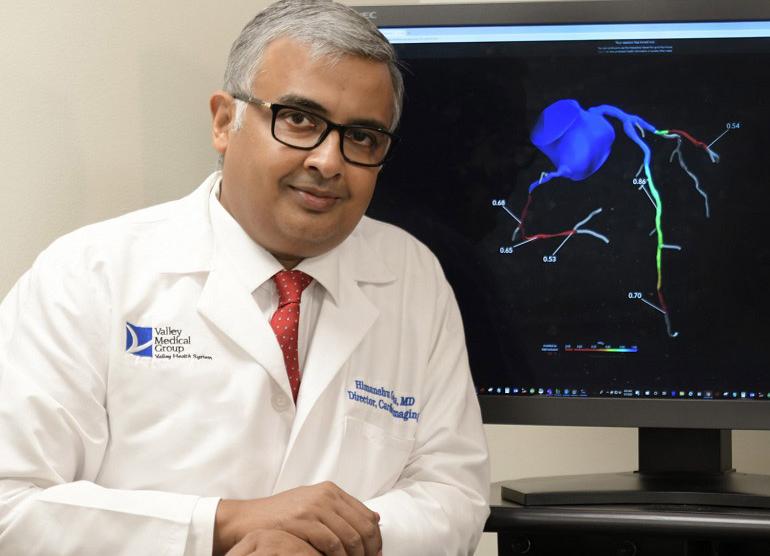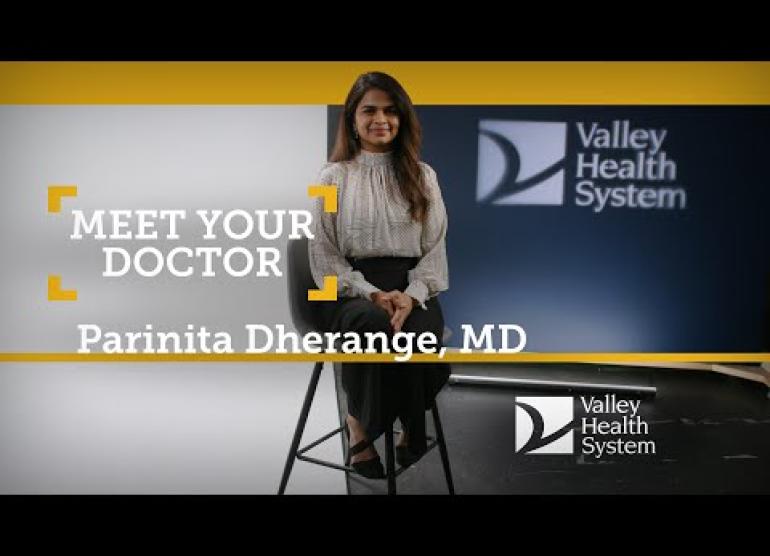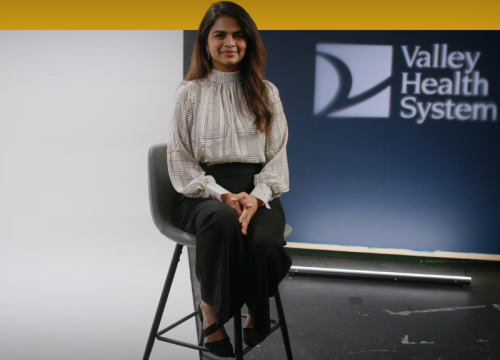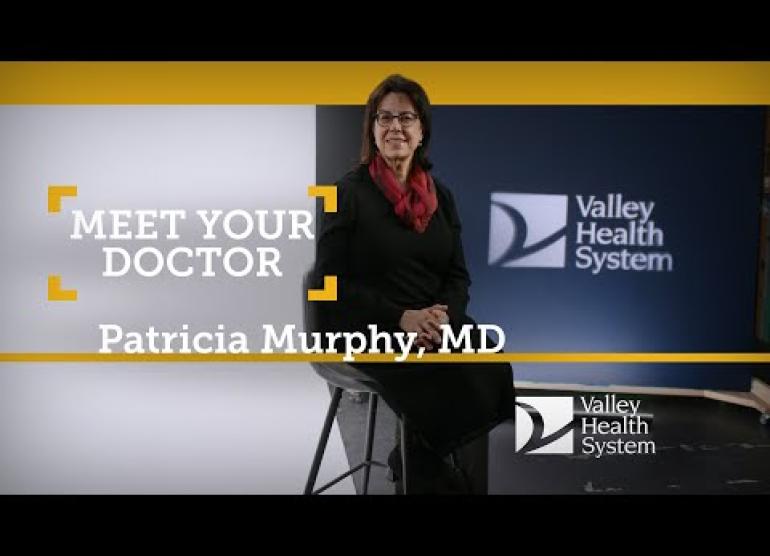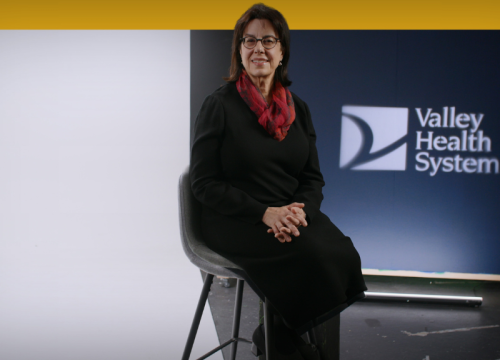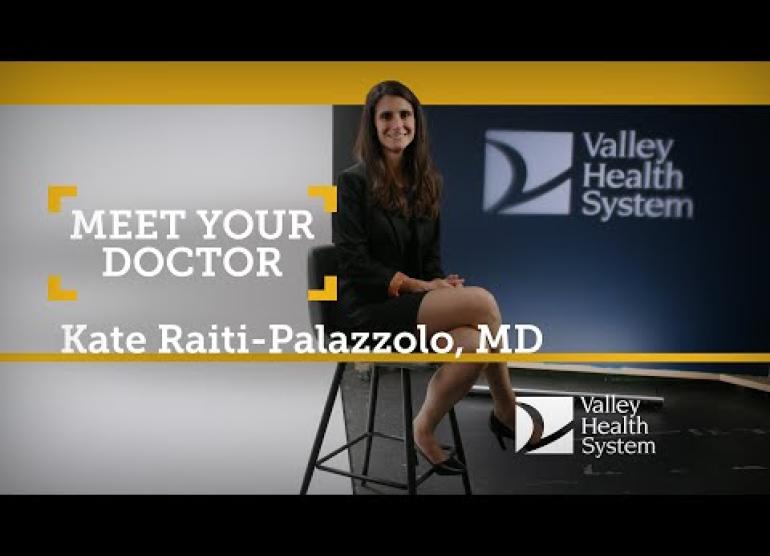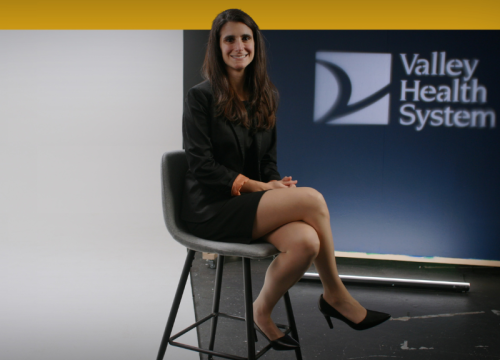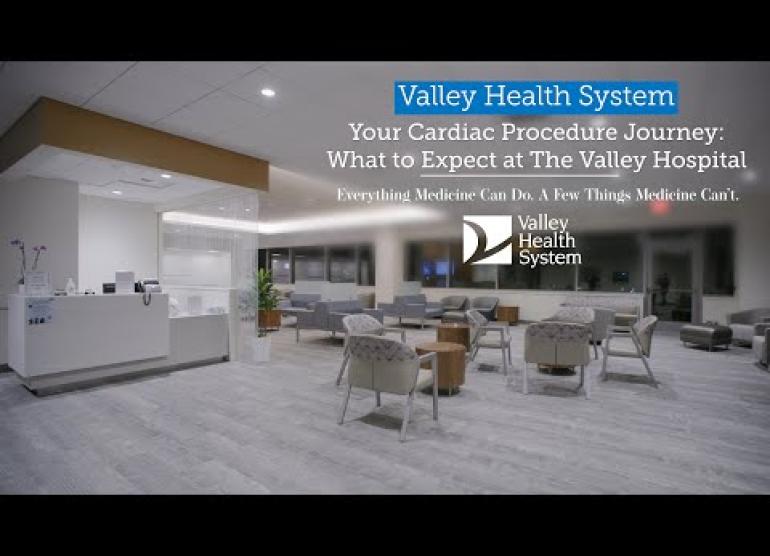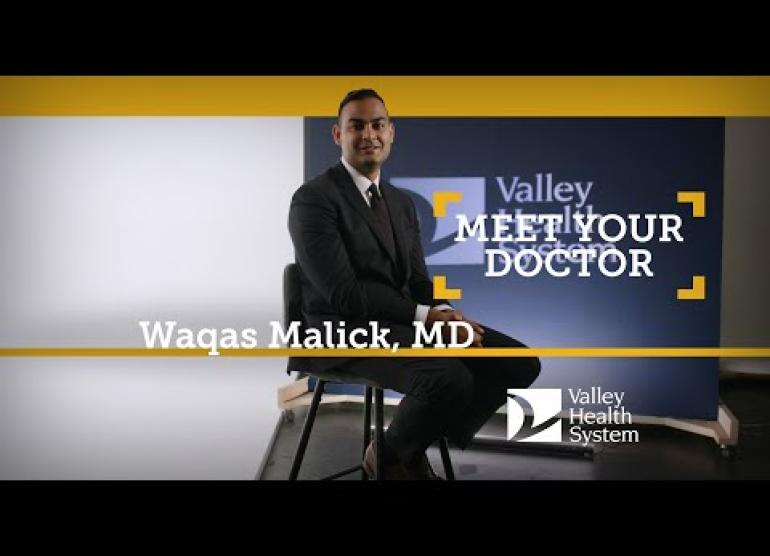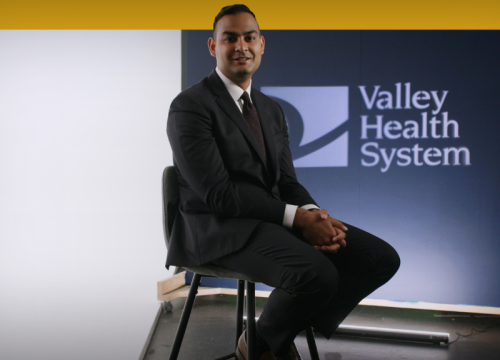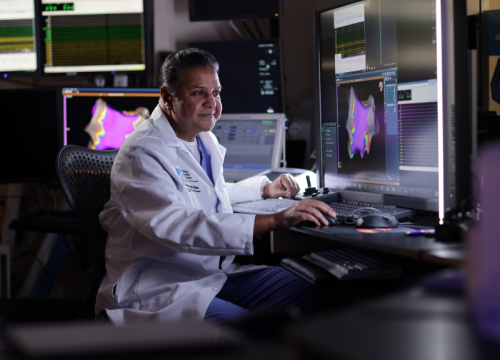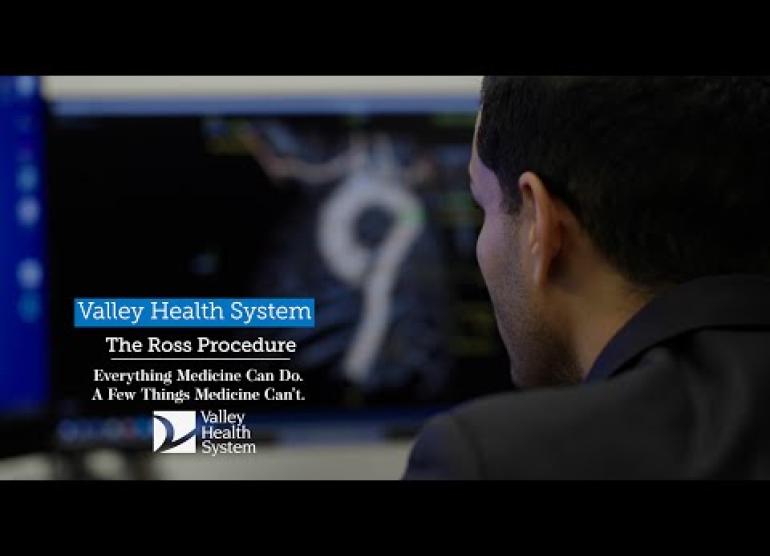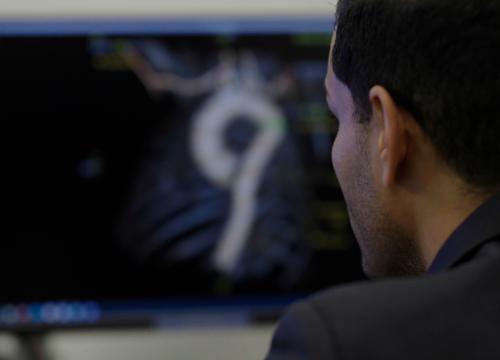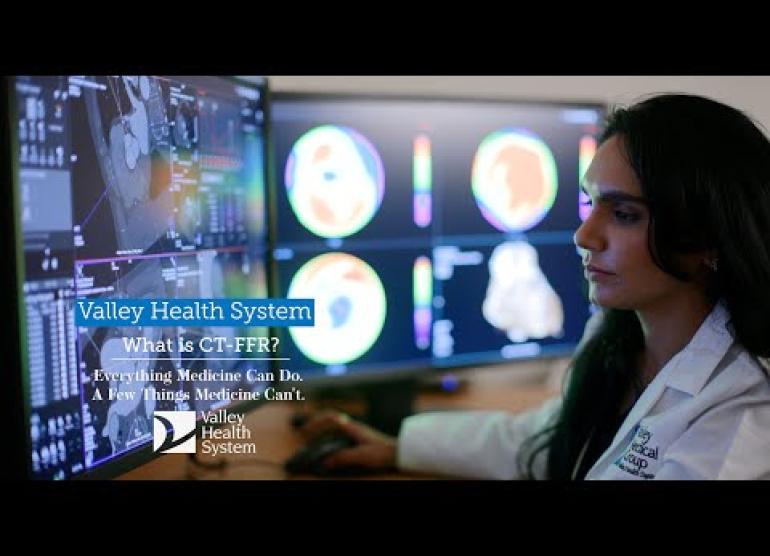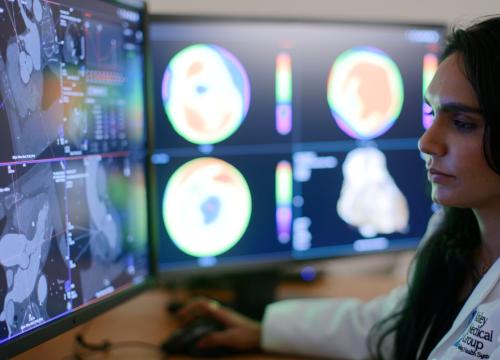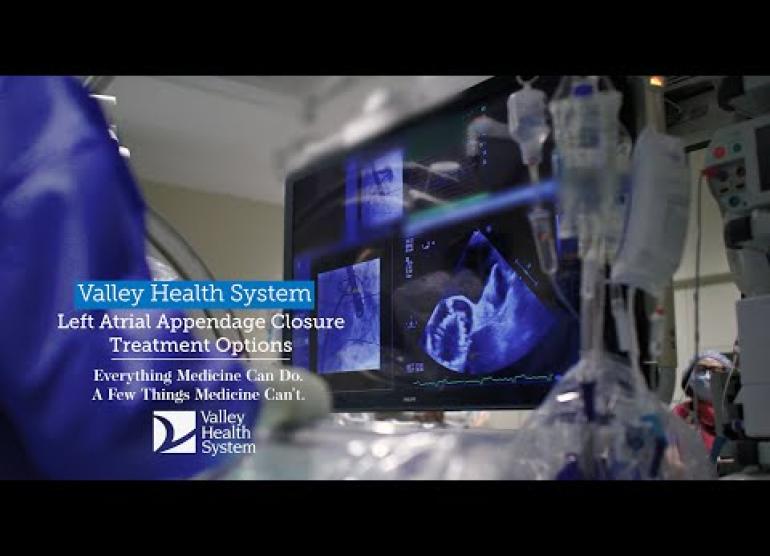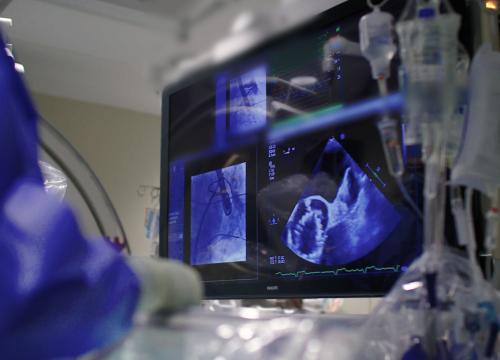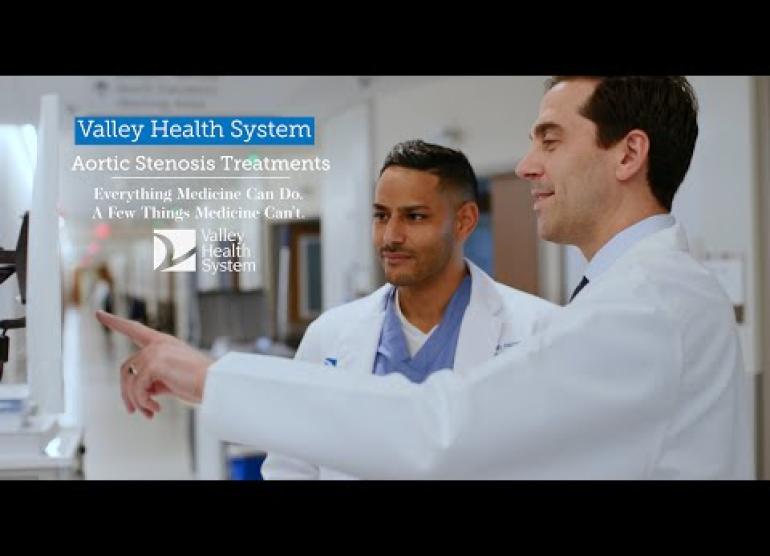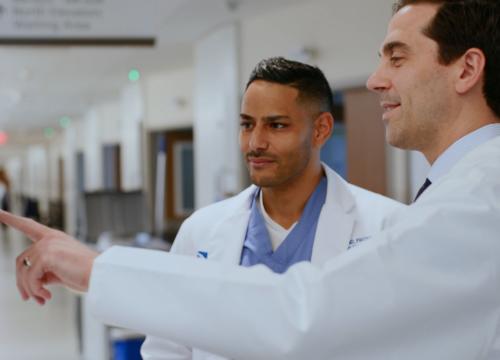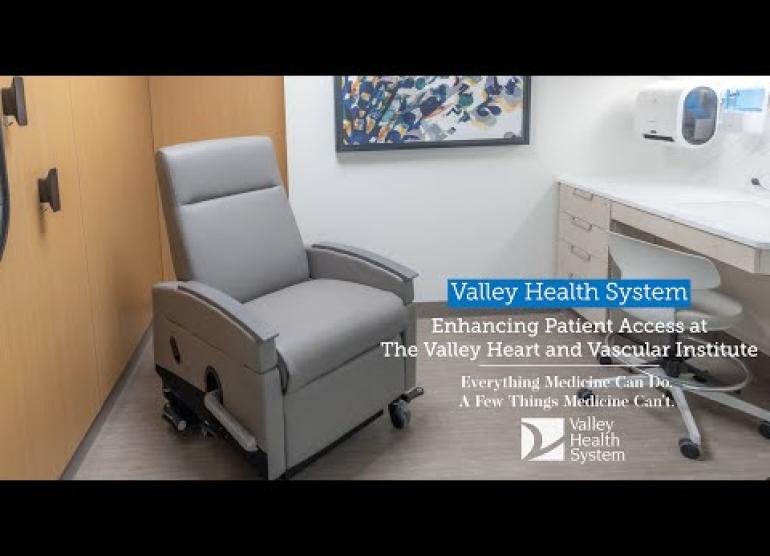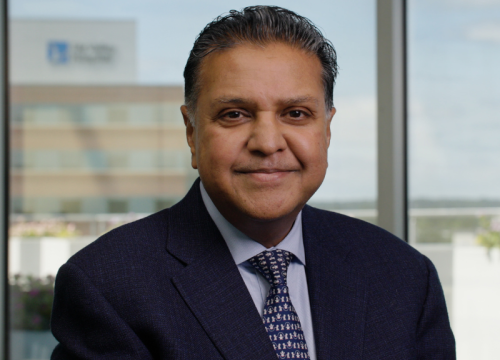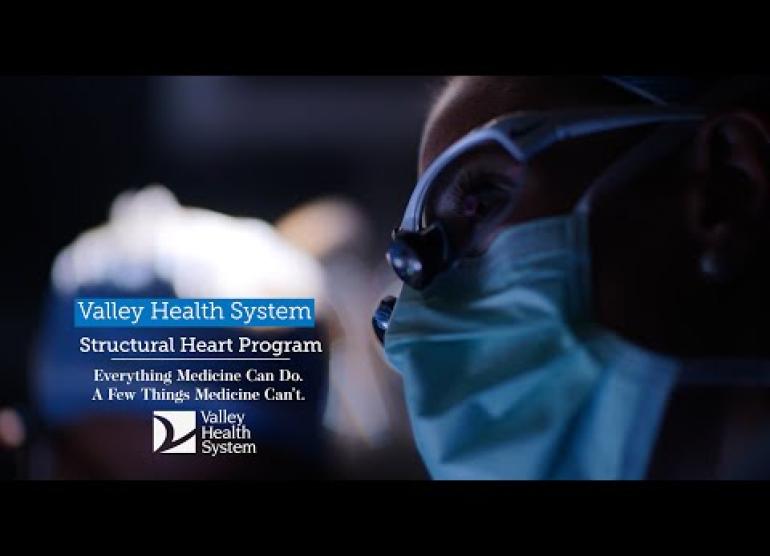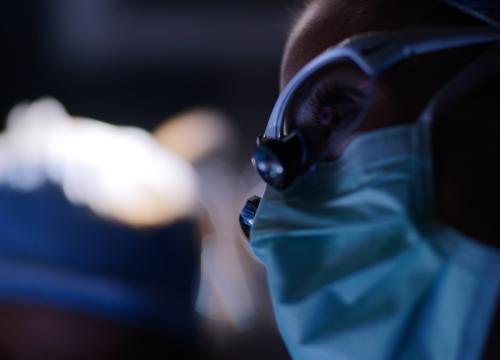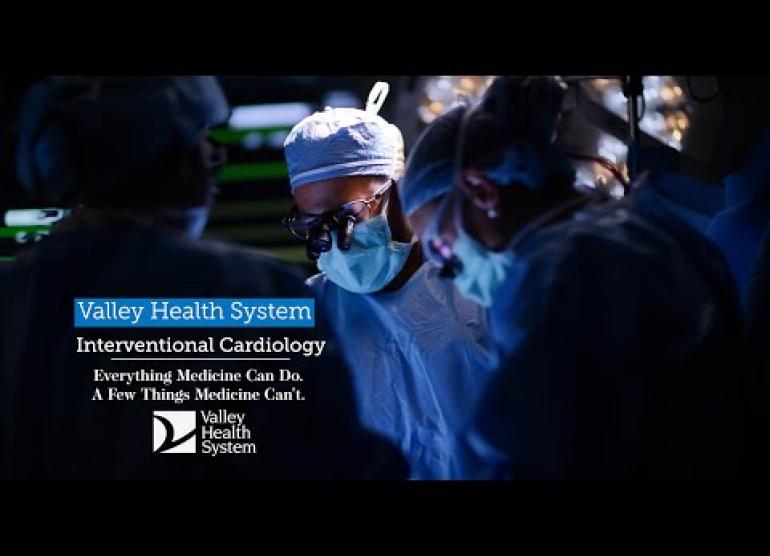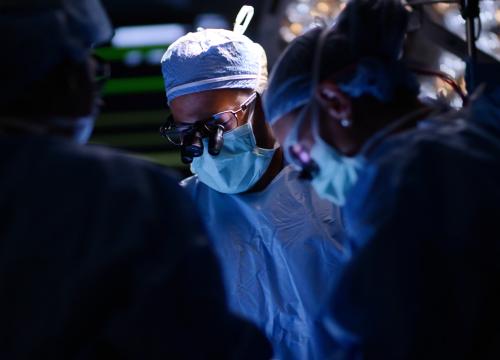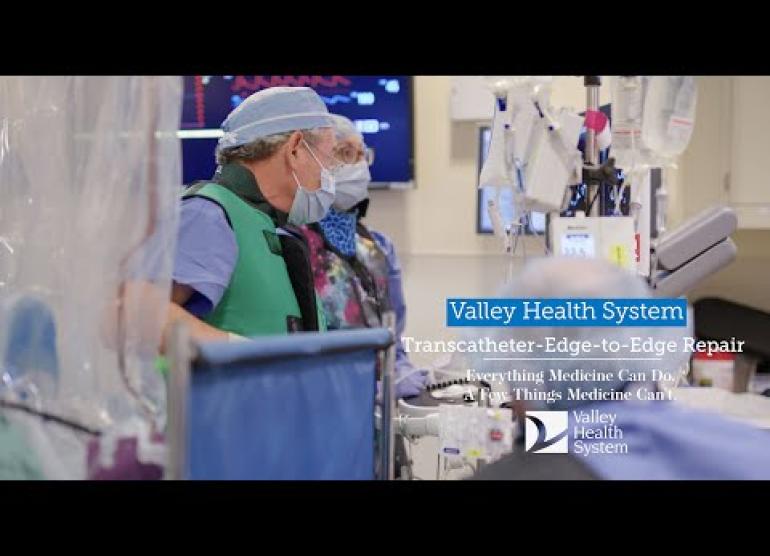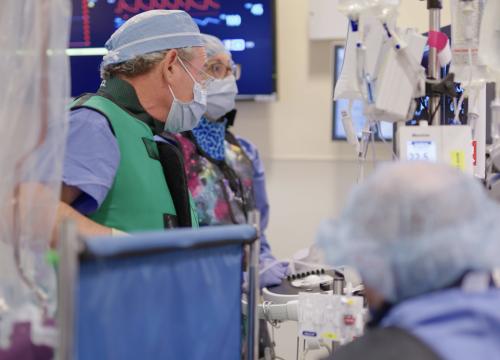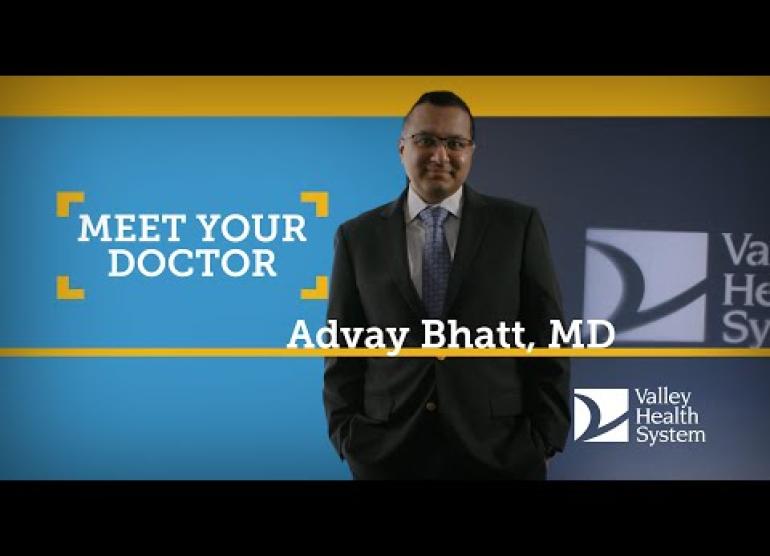Elite heart care at Valley is backed by our excellence in advanced cardiovascular imaging. As one of Valley’s most innovative clinical services, our cardiac imaging program offers:
- State-of-the-art imaging, like cardiac CT, heart MRI, and echocardiograms
- Artificial intelligence to help predict heart attacks and stage the severity of heart disease
- Technology that delivers high-quality images with less radiation
- Expertise in analyzing results to help inform your care plan
- Imaging for high-risk patients, including cardiac MRI for people who have implantable devices (e.g., pacemakers, ICDs)
The program is led by a cardiologist with extensive experience and training in all aspects of cardiovascular imaging.
This combination of clinical expertise and advanced technology allows us to detect heart disease earlier than ever before. This means you can start the right treatment earlier.
The Valley Approach to Cardiovascular Imaging
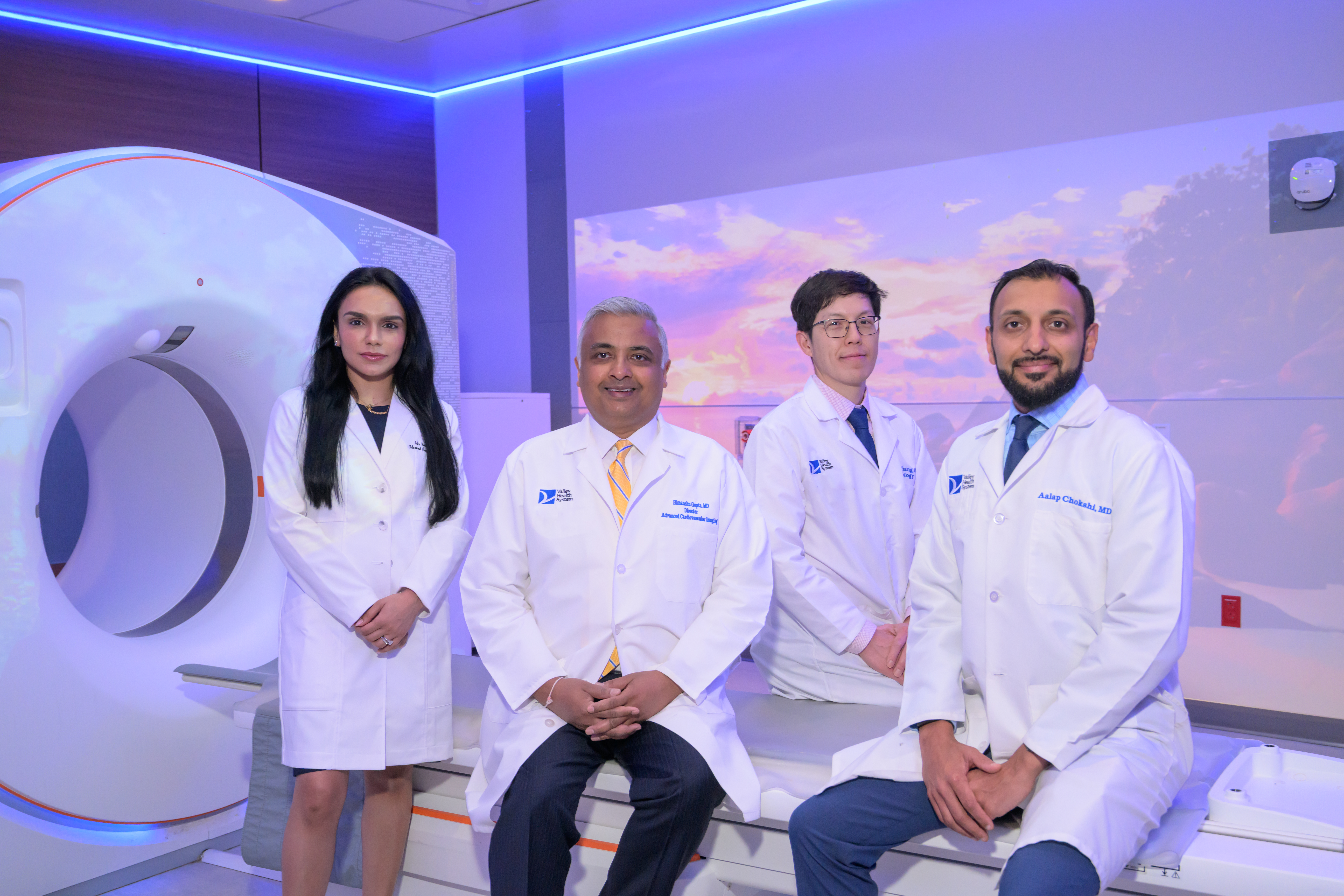
Valley’s cardiovascular imaging program plays a crucial role in our leading heart programs. We collaborate with other heart subspecialists in cardiology, electrophysiology, interventional cardiology, structural heart care, and heart surgery.
Our team helps you and your doctor understand your imaging tests, the results and implications for your treatment.
Collaborative Heart Care
Cardiac imaging is the cornerstone of planning for most heart procedures and surgeries at Valley. Our imaging specialists work side-by-side with electrophysiologists, structural and interventional cardiologists and cardiac surgeons to plan your procedures.
And cardiac imaging specialists are often in the cath lab or operating room to ensure accuracy and precision during your procedure.
Cardiac Imaging Procedures at Valley
- Cleerly Coronary CT Phenotyping
- Cardiac CT
- Cardiac MRA (contrast and non-contrast)
- Cardiac MRI with implanted devices, such as pacemakers and ICDs
- Echocardiography
- HeartFlow Analysis/FFRCT
- Nuclear Imaging (SPECT, PET/CT)
Why Choose Valley for Cardiovascular Imaging?
- Innovators and pioneers in heart imaging: Valley’s cardiovascular imaging program is often an early adopter of new cardiac imaging technologies. Valley was among the first in the region to incorporate artificial intelligence and machine learning with cardiac imaging. These technologies more accurately identify and stage heart disease. This helps you and your heart care team make treatment decisions to truly personalize your care.
- Accurately diagnosing and staging heart disease: Valley uses HeartFlow Analysis, a noninvasive cardiac imaging procedure to accurately diagnose coronary artery disease and evaluate blockages. Your providers use the results to determine the right treatment options for you. For instance, your test may show severe blockages that need to be addressed with angioplasty or coronary artery bypass grafting (CABG). Or, if your blockages are less severe, you may start with medications alone.
- Predicting heart attack risk: Valley offers Cleerly Coronary, which combines noninvasive CT angiography and machine learning to assess your heart attack risk. It identifies and evaluates plaque buildup and narrowed coronary arteries to predict your risk for heart attack. This can help you start preventive treatment sooner, even if you have no symptoms.
- Award-winning imaging: Valley’s cardiovascular imaging program consistently received the CT Quality Award from HeartFlow. Recipients of the quarterly award are generally in the top 25 percent of global medical centers providing patients with a better pathway for identifying and understanding their heart health by utilizing coronary CT and HeartFlow® Analysis.
- National and international leaders: Valley’s director of cardiovascular imaging, Himanshu Gupta, MD, is a highly published leader in field. His research has been supported by the National Institutes of Health (NIH) and has led to significant advances in cardiac imaging. These advancements have resulted in more personalized care for people with heart disease. His research focuses on preventive cardiology, valvular heart disease, pulmonary hypertension, heart failure and how COVID-19 affects heart health.



